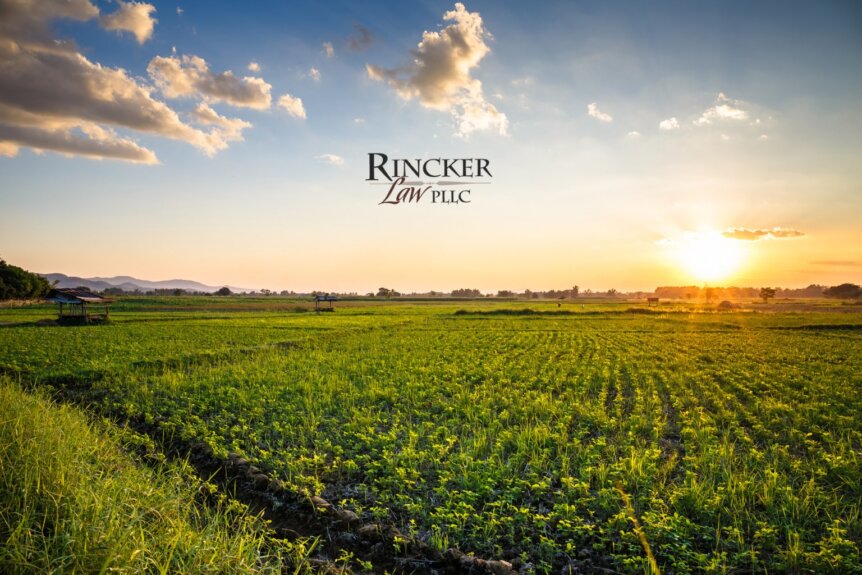For Illinois farmers, protecting your land, equipment, and livelihood isn’t just about good crops, it’s about having the right legal foundation. In this article, “Should You Form an LLC for Your Farm? A Guide for Illinois Agricultural Businesses”, we explain how forming a Limited Liability Company (LLC) can safeguard your personal assets, streamline ownership, and position your farm for long-term success.
What Is an LLC?
An LLC (Limited Liability Company) is a legal entity that separates your personal assets from your business liabilities. It blends the liability protection of a corporation with the flexible tax options and management structure of a partnership or sole proprietorship.
In Illinois, many farms, from small family operations to large agribusinesses are choosing LLCs as their preferred legal structure.
Benefits of an LLC for Illinois Farms
- Personal Asset Protection
If your farm is sued or faces business debts, an LLC can help protect your personal property like your home, savings, and vehicles from being used to satisfy those obligations.
- Flexible Ownership
An LLC can have one owner (single-member) or multiple owners (multi-member), making it easier to include family members or business partners. You can also define each member’s responsibilities and profit share in an Operating Agreement.
- Tax Options
By default, LLC income “passes through” to the owners’ personal tax returns, avoiding the “double taxation” of a C-Corporation. However, you can elect S-Corporation taxation if it benefits your overall tax strategy.
- Succession Planning
Transferring membership interests in an LLC can be simpler than transferring deeds or individual equipment titles. This makes LLCs a strong tool for farm succession planning.
- Professional Image
Operating as an LLC can enhance credibility with lenders, suppliers, and potential business partners.
Potential Drawbacks to Consider
- Formation Costs and Paperwork: You’ll need to file Articles of Organization with the Illinois Secretary of State and pay filing fees.
- Annual Reporting: Illinois LLCs must file an annual report and pay a renewal fee.
- Recordkeeping Requirements: To maintain liability protection, you must keep proper records and avoid mixing personal and business finances.
Steps to Form an LLC for Your Illinois Farm
- Choose a Name – Must be distinguishable from other registered entities in Illinois and include “LLC” or “L.L.C.”
- File Articles of Organization – Submit to the Illinois Secretary of State, either online or by mail.
- Create an Operating Agreement – Not legally required in Illinois, but highly recommended to define ownership, duties, and profit distribution.
- Obtain an EIN – Required for taxes and opening a business bank account.
- Register for Applicable Licenses – Depending on your farm activities, you may need local, state, or federal licenses.
- Maintain Compliance – File your annual report, keep accurate records, and separate business and personal funds.
Illinois-Specific Considerations for Farm LLCs
- Property Transfers: Moving farm property into the LLC may have property tax or mortgage implications—review these before making transfers.
- USDA Program Eligibility: Most programs allow LLCs, but you may need to document ownership interests for compliance.
- Liability Insurance: An LLC is not a substitute for farm liability insurance; both should be part of your protection strategy.
FAQs: LLCs for Illinois Farmers
Q: Will forming an LLC lower my taxes?
A: Not automatically. The main benefit is liability protection. However, LLCs can elect different tax treatments that may lower your tax burden depending on your situation.
Q: Can I form an LLC if my farm is already in my personal name?
A: Yes, but you may need to transfer property titles, equipment, and contracts into the LLC—often with lender approval.
Q: Does an LLC protect me from all lawsuits?
A: No. You can still be personally liable for negligence, fraud, or personal guarantees.
Q: How long does it take to form an LLC in Illinois?
A: Online filings are typically processed within a few business days; mailed filings can take longer.
Q: Is an LLC better than a corporation for a farm?
A: For most small and medium-sized farms, yes. LLCs offer more flexibility and simpler tax reporting than corporations.
Need Help Forming an LLC for Your Farm Business in Illinois?
An LLC can be a powerful tool for protecting your personal assets, clarifying ownership, and making your farm more adaptable for the future. But it’s not a one-size-fits-all solution—your decision should be based on your goals, risk exposure, and succession plans.
At Rincker Law PLLC, we help Illinois farmers form LLCs that protect their operations and align with their long-term vision.
Call us today at (217) 774-1373 to discuss whether an LLC is the right fit for your farm and get the guidance you need to set it up correctly.

